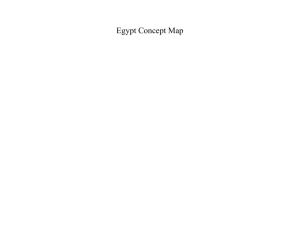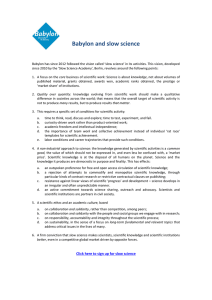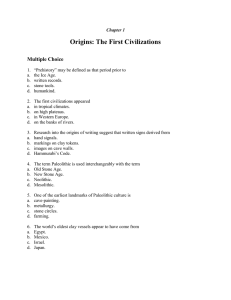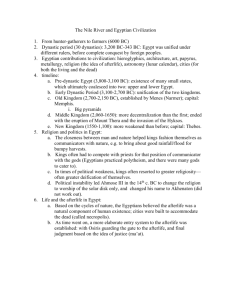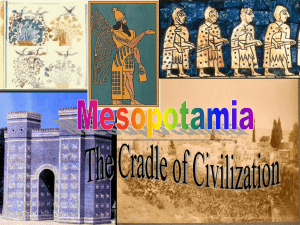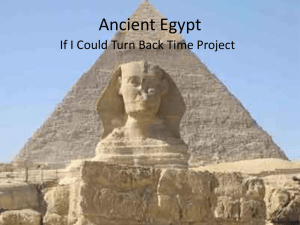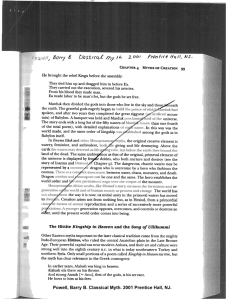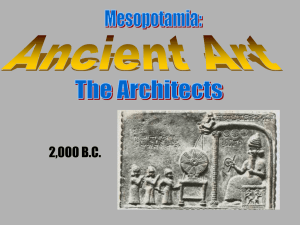Egypt, Mesopotamia, Fertile Crescent Test Review Sumer
advertisement
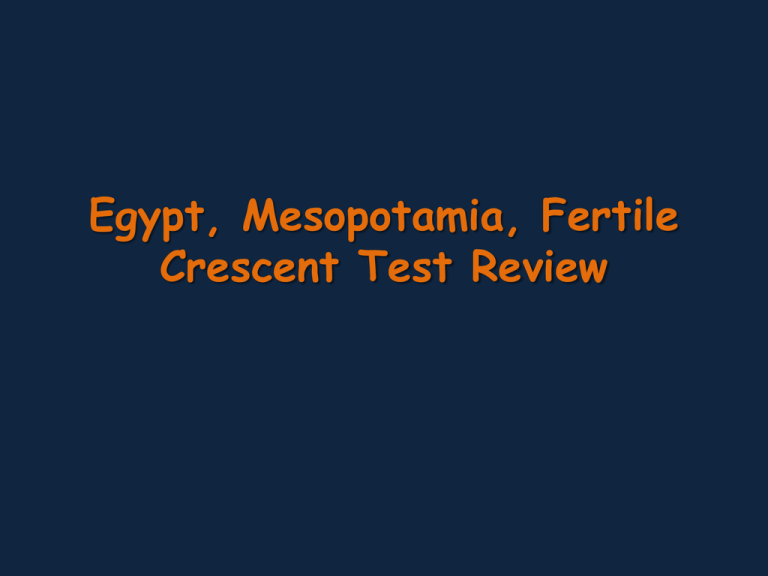
Egypt, Mesopotamia, Fertile Crescent Test Review Sumer • • • • • • Developed cuneiform Invented the wheel Built Ziggurats City States Polytheistic Epic of Gilgamesh Babylon • • • • Code of Hammurabi Capital was Babylon Adopted Sumerian gods Expanded public works projects Hittites • Indo Europeans • Developed iron weapons • Revolutionized warfare Assyrians • Brutal treatment of enemies and fierce warriors • Improved weapons and siege tactics • Established large empire • Developed road networks • Built one of the world’s first libraries Chaldeans/Neo Babylonian Empire • Restored Babylon • Hanging Gardens of Babylon • Captured Jerusalem and brought Jewish slaves back to Babylon Phoenicians • Traders who traveled throughout the Mediterranean • Carriers of Civilization • Spread ideas and technology throughout the Mediterranean • Developed the alphabet Dynasty • Power/rule passed one from one family member to another Theocracy • Government run by religious leaders Cuneiform • Wedge shaped form of writing developed by the Sumerians Hieroglyphics • Form of writing using pictures to represent letters and concepts Egyptian View of the Afterlife • Positive view • Reflected the favorable geographic characteristics of the Nile River Valley Sumerian View of the Afterlife • Feared gods • Saw gods as unpredictable • View of the afterlife was gloomy and bleak • Reflected the unpredictable nature of their world Effects of Geographic Factors in Sumer • Lack of natural barriers promoted cultural diffusion Effects of Geography on Egypt • Natural barriers protected Egypt from invasion and movement of large groups of outsiders • Limited cultural diffusion • Promoted development of unique Egyptian culture
